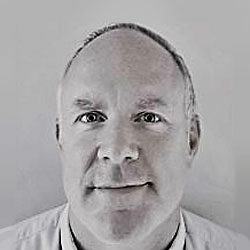Could you do this more quickly?

Simon Bird

‘We’re very busy – how about doing it in half a day? I’m not sure we can spare the time to do navel gazing.’
I work with people and groups who want to change things. It might be their own behaviour, it might be how they work together or it might be how other people do things – e.g. how can you get your staff to wash their hands every time. (Not most of the time – every time.)
And this takes time. In the past I’ve sometimes been apologetic about this. But the last 2 days have helped me resolve to hold to this design principle.
I’ve just finished facilitating a 2-day residential workshop with 4 teams of 10 people from different NHS organisations, who are all working on changes they want to bring about. They’re an inspirational bunch, and include consultants, housekeepers, paramedics, nurses, managers and pharmacists in their numbers. They were very clear – 2 days out felt like a very long time out – and people were experiencing everything from guilt and frustration to positive delight.
Unsurprisingly, our challenge was to slow them down. We knew that if their problems were simple and could be solved by working flat out, they would already have solved them – and this was the underpinning principle to all our work with them. Instead, over the 2 days we worked through a longer and slower ‘design thinking’ process – based around having a deeper understanding of what was really happening back in the workplace. Colleagues generally come to work to do a good job, so why weren’t things changing how they wanted them to? How well did they truly understand the motivations and experience of those same colleagues? Were they making life easier for them? Or more complicated?
And whilst design thinking was an effective process, that’s not my main memory from the 2 days. My real take away memory is how we kept pulling these intelligent and motivated people back from problem-solving. Again and again, we paused, intervened and gently held people back as we promised them we would get to that point in the process – but first, keep exploring, keep listening to your team, work harder to understand views that are different from yours.
As the workshop came to a close, and the teams had multiple worked up proposals with action plans, owners and outcomes, we asked them what made the difference. The overwhelming theme of the responses was, ‘substantial time together’. We realised some of these teams barely knew each other at the beginning. When they did see each other at work, they would often (not always) be in full on ‘role’ and barely pause to see each other as people. Decisions were made quickly, time for exploration or innovation was fairly unheard of and their prevailing climate was one of, “do it quicker – and preferably cheaper.”
We’ll know more in June when the teams all reconvene again to see how they’ve got on with implementation.
But I know now that when someone asks me if I can work with their team a bit more quickly – I need to hold my nerve, and say, “If you want to make a difference…….probably not.”